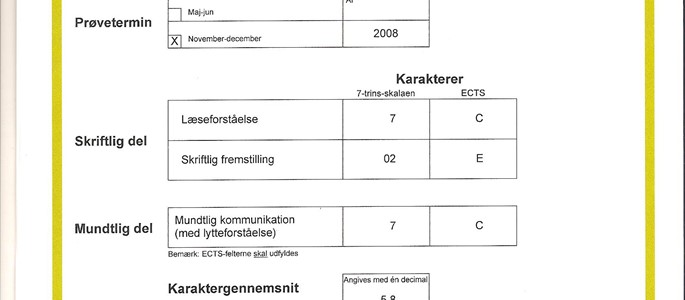EDITORIAL: Politicians misuse demands on learning Danish
Socialdemocrat's proposal on higher demands for family reunification indicates that they do not understand how Danish language education works
Both Venstre, Dansk Folkeparti and now also Socialdemocrats will make demands on residents to obtain family reunification and permanent residency tougher. Among other things they propose passing the exam of Dansk 2, where the demand today is only Dansk 1. The government has also introduced a language bonus which expresses the same line of thought.
Today there is a demand for the newly arrived on family reunification to pass A1 Danish test within 6 months. This is a very simple test which almost everyone will pass. It should not be confused with Dansk 1 (PD1) which consists of 6 modules and is at a much higher level.
Using the three Danish language educations in connection to making demands stricter is a sign that politicians (and even their civil servants) have not understood how the educations are designed.
There are three parallel educations, organized according to the ability the pupils will have for learning Danish. Dansk 1 (PD1) is for pupils with little or no schooling from their home country or with trauma or other issues which will limit their capacity to learn. Dansk 2 (PD2) is for pupils with an ordinary school background, and Dansk 3 (PD3) for people with a longer education and knowledge of other languages. The three educations consist of modules which are passed gradually – th elast module being module 6, and on top of this is a special study test on Dansk 3, giving access to the higher educations in Denmark.
The pupil does not choose which of the three educations to start in, and you don't pass from Dansk 1 to Dansk 2, but graduate from Dansk 1. Some pupils succeed in moving from Dansk 1 to Dansk 2 along the way, or they will continue in VUC (adult education centers) to improve their skills. After graduating from Dansk 1 it is possible to pay to continue in Dansk 2, but very few people do it.
The pupil can also not choose how many hours to attend the language school. This is planed from the municipal job centre and is supposed to be combined with job training or internships. Most foreigners start out going to language school 4 hours, 3 times a week. Those who want to learn Danish faster and ask for more hours will not necessarily get them. Far from all municipalities have an offer of help with homework. Thus it is limited how fast a refugee can learn Danish, not considering the person's own motivation and wishes.
In other words, people who were unfortunate to have limited schooling in their home country or have been exposed to trauma or other things affecting their ability to learn, are excluded from family reunification, from economical language bonus and from permanent residency. As participating actively in language education is already mandatory, the politicians can not argue that an incentive for learning Danish is needed – it is already there.
If the politicians actually understand the way the language education is designed, the conclusion must be that they intently wish to put people with poorer educational skills than others in a weaker legal position in Denmark.


